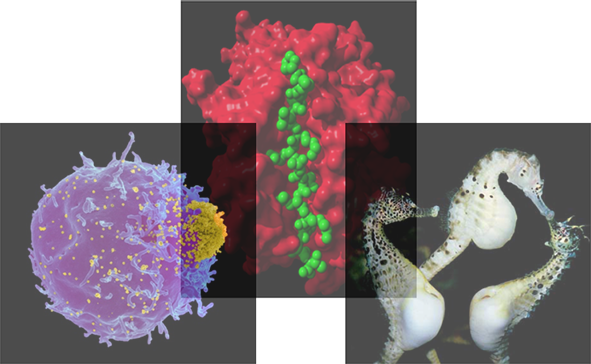Adaptive immunity and immune memory are defining characteristics of higher vertebrates. The ability to retain a record of prior infection allows the immune system to learn through experience and to respond rapidly upon secondary exposure. While the majority of vertebrates have a fully functional immune system, seahorses have a simplified system, providing a tractable experimental model for studying host-pathogen coevolution. Seahorses inhabit both pristine environments with minimal human impacts, and urban sites heavily impacted by human activities. How do these environmental differences influence the functional genetic diversity of seahorses inhabiting these environments?
BUEE students involved in this project will use genetic and genomic methods to probe immune diversity in natural populations of seahorses inhabiting nearshore environments. Depending on student interests and experience, this project could involve the development and testing of immunological tools to explore immune function or expand into more comparative studies, investigating how the functional immunity of nearshore inhabitants is influenced by the conditions of their surrounding environment.
